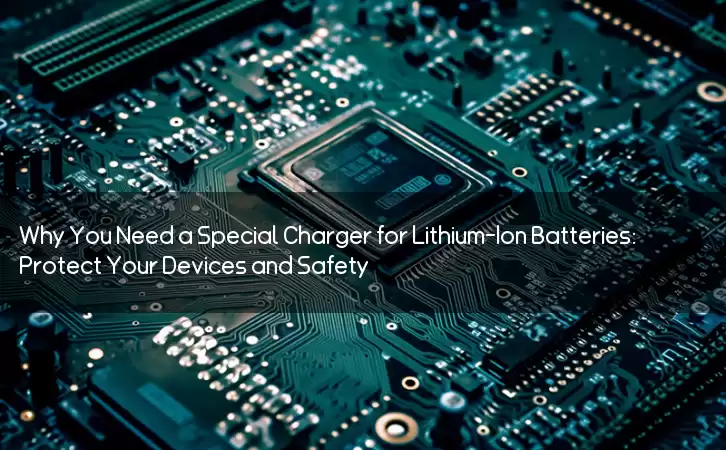Information Center
Why You Need a Special Charger for Lithium-Ion Batteries: Protect Your Devices and Safety
Published:2023-07-25 00:34:19 Author:Green WCND Views:51Do lithium ion batteries need a special charger?

Lithium-ion batteries are a popular choice for electronic devices such as smartphones, tablets, laptops, and electric vehicles due to their high energy density and long-lasting performance. However, one question that often arises is whether these batteries require a specific type of charger to maintain their lifespan and functionality.

The answer is yes, lithium-ion batteries do require a special charger for several reasons. Firstly, lithium-ion batteries are extremely sensitive to overcharging or undercharging. Overcharging can cause the battery to become unstable and potentially be a fire hazard, while undercharging can result in a reduced lifespan and poor performance. Hence, it is important to use a charger specifically designed for lithium-ion batteries that prevent overcharging and undercharging by cutting off power once the battery is fully charged.
Secondly, the charging process for lithium-ion batteries is different from other types of batteries, such as lead-acid or nickel-cadmium batteries. Lithium-ion batteries have a higher voltage, and a specific charging profile is required to ensure that the battery is not damaged while being charged. A lithium-ion charger adjusts the charging voltage and current based on the battery’s state of charge, ensuring that it is charged safely and efficiently.
Lastly, lithium-ion batteries have a built-in protection circuit that prevents the battery from overheating and overloading. This protection circuit communicates with the charger to ensure that the battery is charged at a safe rate, and the charger also monitors the temperature of the battery during charging to prevent overheating.
Using a charger that is not specifically designed for lithium-ion batteries can result in several problems. It can damage the battery’s protection circuit, leading to a shorter lifespan and poor performance. The battery may also overheat or become unstable, increasing the risk of a fire or explosion. Additionally, using a non-compatible charger may void the battery’s warranty.
In conclusion, lithium-ion batteries require a specific charger that is designed to safely and efficiently charge these batteries. Using the wrong charger can cause damage to the battery, impact its performance and lifespan, and potentially cause safety hazards. It is essential to use the right charger for your device to ensure that the battery remains healthy and functioning optimally for a long time.
The battery pack is the heart of a golf cart, silently powering every acceleration and climb on the green. However, battery degradation often goes unnoticed, mu···
The battery pack is the heart of a golf cart’s power system, yet maintaining it has long been a challenge for technicians. Traditional troubleshooting methods—···
For golf course managers, ensuring smooth and efficient operations is crucial for providing a memorable experience for golfers and maintaining the reputation of···
A battery tester ensures golf course cart batteries operate efficiently and reduces downtime through the following ways:I. Precise Battery Condition DiagnosisOp···





